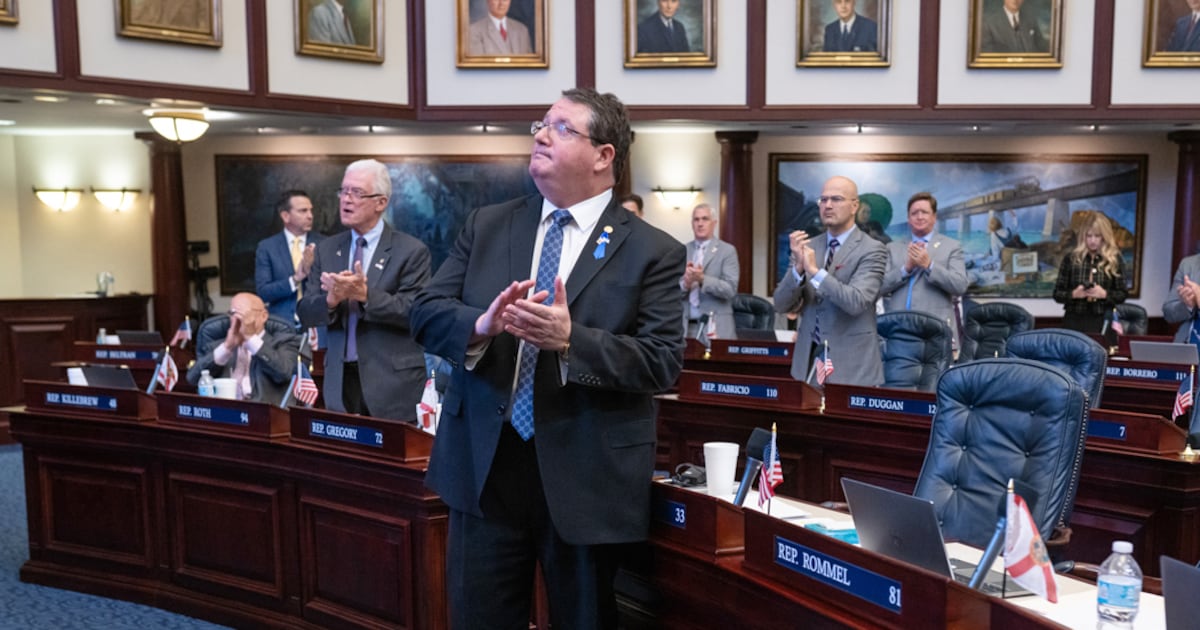The guy on the phone is trying to buy a piano. He’s a 55-year-old Staten Island man calling about an ad for a vintage grand. On the call, he’s energetic, gregarious, and prone to laughter–which is good, because the salesman, prank-caller Johnny Brennan of the Jerky Boys, has veered off-topic, away from thousand-dollar instruments and onto what he calls his “Terminal Groove” class: a hybrid of bikram and goat yoga, that involves stretching at 110-degree temperatures surrounded by hot goats in total silence. Raised voices or screaming, he explains, can cause the animals to collapse and go into cardiac arrest. “I’m an animal lover,” Brennan rasps. “But you know, everybody’s gotta make money. These goats gotta help out a little. They gotta pitch in.”
It’s been almost seven years since Brennan made a prank call, but more like 25 years since he hit the phones in earnest. Back in the 1990s, Brennan and his partner, Kamal Ahmed, made a living doing what Bart Simpson did for free: calling up strangers in the New York area, posing as one of a small cast of characters–caustic pseudo-mobster Frank Rizzo, inept magician Tarbash, or in this case, hypochondriacal Sol Rosenberg–and gabbing until the stranger hung up, or they did, or both. For half a decade, the Jerky Boys went about as far as crank calls can get you. Howard Stern played their bootlegs; their first two albums went double platinum; they starred in a movie with Alan Arkin and Vincent Pastore. But in 2000, after some intra-Jerky Boy tension, Ahmed quit. Each one tried to go solo; nothing stuck. The piracy of the dot-com boom killed commercial prank calls. The joke was, more or less, over.
Over, at least, until Black Friday, when Brennan dropped his first album of original prank calls since 1999. The self-titled record arrived after a minor resurgence of interest in the Jerky Boys’ work, born partly out of ’90s nostalgia, partly out of the ubiquity of YouTube. “The internet clobbered the record business 20-some-odd years ago,” Brennan said. “And now the internet is back again and in a good way, spreading everything that I've ever done.” Otherwise, little in the Jerky Boy universe seems to have changed. The technology is different–Brennan had to rig a Samsung Note so it recorded both sides of every call; and Ahmed, with whom Brennan hasn’t had contact in decades, never appears. But aside from a few new characters, the album plays like a time capsule–picking up with old personalities like they’d never left. “Once you get going, it just flows,” Brennan said. “I wasn't looking to compete with myself. I just wanted to let the characters flow.”
ADVERTISEMENT
Not everything about the 1990s translates to the 2020s, and some jokes sound dated to the contemporary ear. But if the appeal of the childhood prank call is getting one over on somebody, Jerky Boys calls are mostly carried by the silliness and force of their characters. Most of Brennan’s personalities are pastiches of his family members–Rizzo’s based on his dad; Rosenberg comes from his mom; the WWII-vet singer Frank Kissel is modeled on his Uncle Vinny–and it may be the intimate source material that endows them at once with an over-the-top cartoonishness and a kind of basic familiarity.
The best moments of the album come not from the fact of someone being fooled, though that is part of it, but when Brennan lets loose for long enough to either win them over or wear them out. In one track, a blabbering Frank Rizzo tells a dental hygienist about his homemade braces–putting squares of wood and metal in his own mouth until he “tore shit up in there”–demanding immediate assistance to “square some shit away.” When that doesn’t work, he starts on leg braces. The hygienist gives up on debate, in favor of a withering skepticism that seeps into every remark: “Yes, okay sir. Sure.” In the goat yoga call, the affable would-be-piano-buyer cackles along with Rosenberg’s reedy account of his billy goat labor practices. “You know what I call yoga?” he guffaws. “Stretching with pain.”
The album dropped just three weeks after the election, as the global pandemic enters its dark winter wave: two all-consuming events that seem to have touched all corners of culture. But Brennan ignores both. For the most part, the subject matter is uncomplicated and ageless–he riffs on pianos, hot tubs, mulch, and balloons–topics his callers could have opined on in 1972 as easily as yesterday. It may be the simplicity of the calls that make them feel timely. There’s something satisfying about hearing two people, one normal, one insane, just talk about bathtubs. “There’s so many things in this world to be down about,” the Jerky Boys said in 1995, “we’re just trying to make people laugh.”






